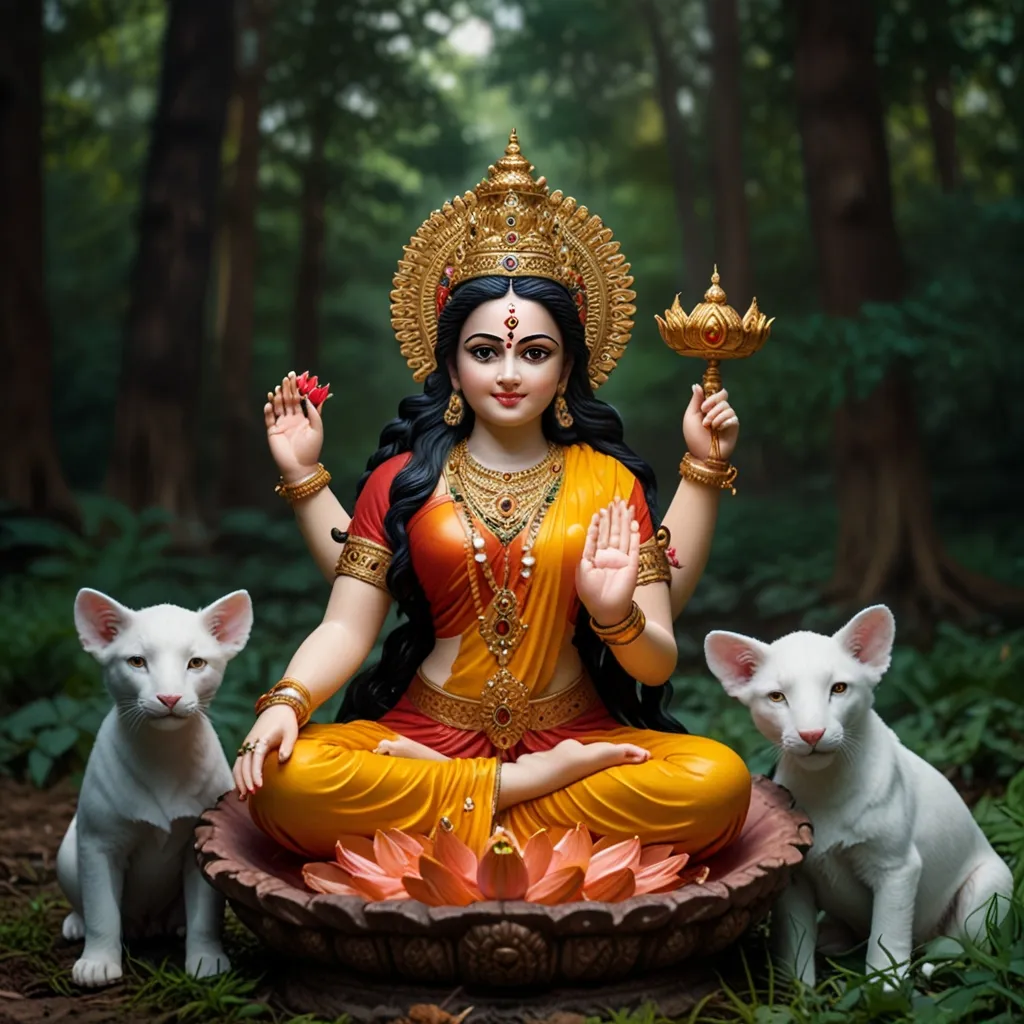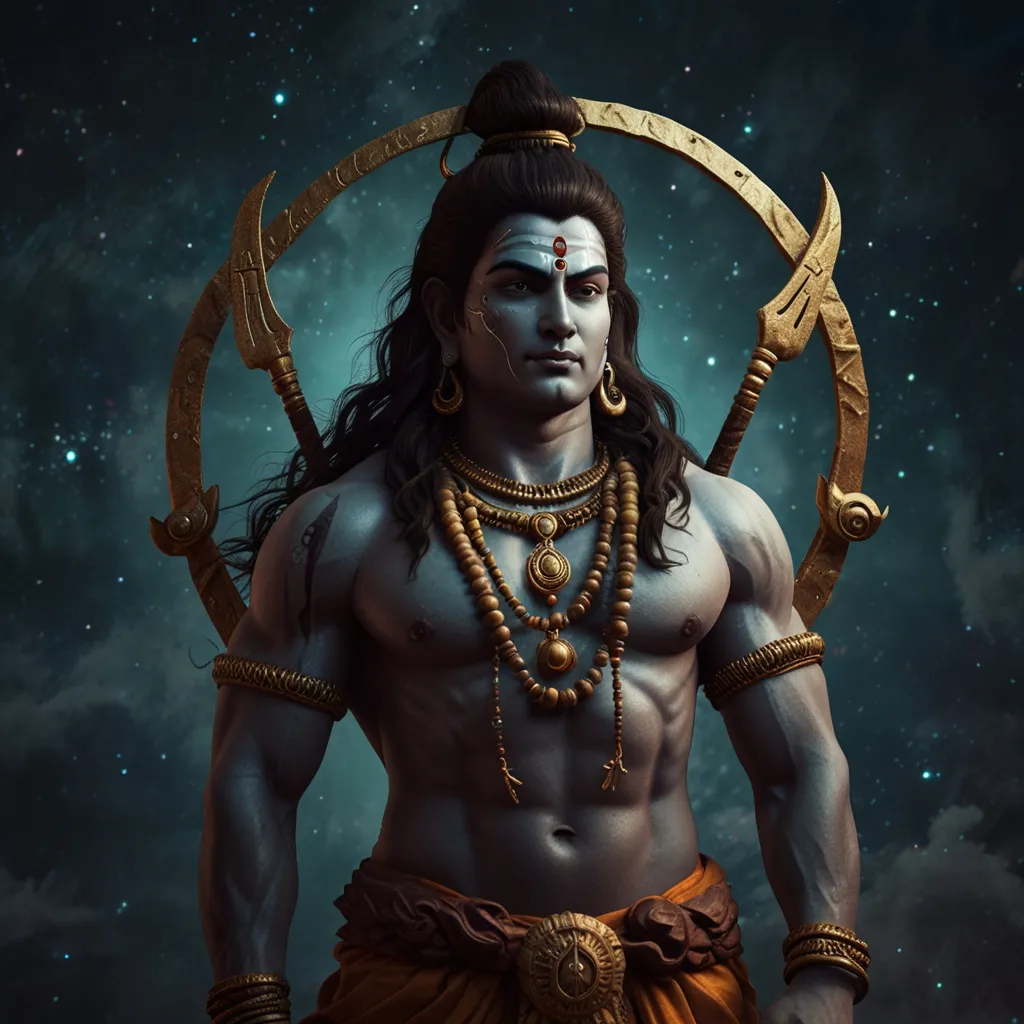In the captivating world of Hindu mythology, there are countless fascinating tales of gods, goddesses, and mortals weaving their destinies together. Among these legendary narratives is the enchanting story of Shiva and Anasuya, which dives deep into themes of devotion, power, and the timeless dance between the divine and the human.
Anasuya, the wife of sage Atri, stood out for her exceptional virtues and unwavering dedication to her husband. Her name alone—meaning “free from envy”—spoke volumes about her pure and selfless heart. Residing in a peaceful hermitage deep within the forest, Anasuya and Atri spent their days in meditation and honoring the gods with their devout service.
One fateful day, the three primary deities of the Hindu trinity—Brahma, Vishnu, and Shiva—decided to put Anasuya’s virtues to the test. Disguised as beggars, they appeared at her doorstep seeking food. Anasuya, known for her boundless hospitality, graciously welcomed them. Sensing that her guests were no ordinary men, she proposed that they bathe and change into fresh clothes before she served them.
Pleased by her sincere hospitality, the gods agreed. As they bathed, Anasuya used her divine powers to transform them into infants, tenderly nursing them as if they were her own children. This act of selfless love and care beautifully showcased her immense compassion and purity of heart.
When the gods reverted to their true forms, they were deeply moved by Anasuya’s actions. They offered her a boon, and in her characteristic selflessness, she wished for the well-being of all living beings. Impressed by her noble wish, the gods blessed her with a child, Dattatreya, who would embody the combined virtues of Brahma, Vishnu, and Shiva.
Dattatreya, known as the Avadhuta, grew up to be a revered sage and spiritual teacher. Wandering the earth, he shared his profound wisdom with those seeking enlightenment. His teachings emphasized detachment, self-realization, and the pursuit of spiritual knowledge.
The tale of Anasuya and Dattatreya is not merely a story of divine intervention but also a powerful testament to human virtues. It highlights devotion, selflessness, and the unwavering commitment to one’s principles. Such stories in Hindu mythology are revered as moral guides, inspiring generations to emulate the virtues of these legendary characters in their quest for spiritual growth.
Anasuya’s virtue wasn’t tested just by the gods but also by their consorts—Saraswati, Lakshmi, and Parvati—the divine mothers of creation, wealth, and destruction. The three goddesses, curious about who among them was most virtuous, sought Narada’s wisdom. Always the impartial sage, Narada encouraged them to visit Anasuya.
Disguised as ordinary women, the goddesses approached Anasuya’s hermitage. They were struck by her humility, kindness, and grace as she welcomed them with utmost respect and care. Completely unaware of their divine identities, Anasuya served them with genuine generosity. Impressed by her unparalleled virtues, the goddesses declared Anasuya the most virtuous of all and blessed her with their divine grace.
This narrative underscores Anasuya’s exceptional character and her ability to inspire even the gods. It accentuates the importance of humility, kindness, and dedication to one’s principles—qualities that are revered for spiritual growth and enlightenment.
Anasuya also played a guiding role during the exile of Rama and Sita. When the divine couple visited her hermitage, she warmly received them and shared her wisdom with Sita. Anasuya imparted to Sita the secrets of a woman’s dharma, stressing absolute devotion to one’s husband and in-laws. This counsel reflected both societal norms and the sacred bond of marriage cherished in Hindu tradition.
Another legend intertwines Anasuya’s story with that of the sage Mandavya, who faced unjust punishment. His devoted wife, Shandili, desperately appealed to the sun god Surya to delay the sunrise, thus prolonging her husband’s life. Touched by her devotion, Surya consented, causing cosmic upheaval. The gods, struggling to perform their rituals, sought Anasuya’s help. Anasuya, with her immense tapas shakti (austerities-powered strength), restored natural order, highlighting once more the transformative power of personal devotion.
This episode underscores the transformative power of faith and persistence. It illustrates how one individual’s unwavering belief can impact the entire world—a central theme in Hindu philosophy.
In the epic tapestry of Hindu mythology, the story of Shiva and Anasuya is one of profound devotion, divine power, and the eternal dance between the divine and human spirit. Through her unwavering commitment to her principles and selfless service to others, Anasuya embodies the essence of these timeless tales. Her story serves as a guiding light, reminding us of the enduring power of devotion and the importance of living a virtuous life.






